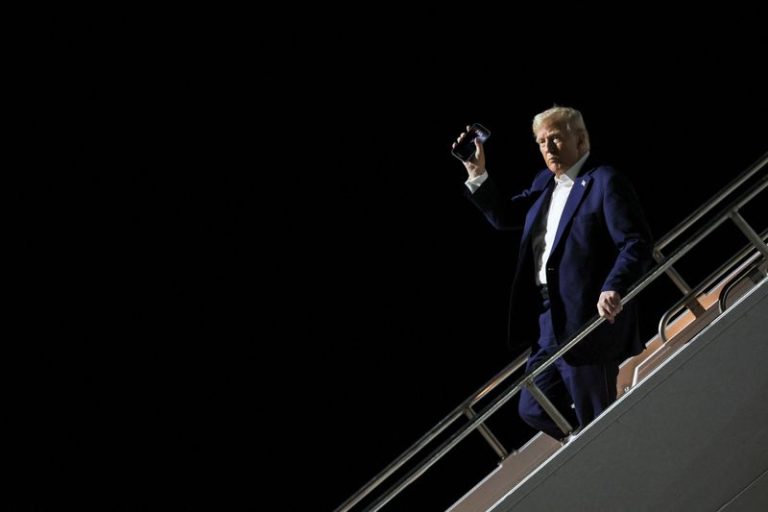By Nandita Bose
LAS VEGAS (Reuters) – President Donald Trump is capping a frenzied first week back in office with a stop in Las Vegas on Saturday to talk about cutting taxes on tips, a 2024 campaign promise he made in the gambling and hospitality hub.
Since taking office on Monday, the new Republican president reversed a myriad of policies put in place by Democratic predecessor Joe Biden and moved to fulfill his vow of remaking and shrinking the federal bureaucracy.
In visits on Friday to disaster areas in North Carolina and California, Trump pledged federal aid to help those states recover from hurricane and wildfires after floating an idea to shutter the Federal Emergency Management Agency.
In Las Vegas, Trump was expected to discuss a less controversial pledge to end taxation of income from tips and overtime, a proposal he first made in June as he courted service workers in the presidential swing state of Nevada. The tip-heavy hospitality industry comprises more than a fifth of jobs.
“Can you remember that little statement about tips?” Trump said during one of several inauguration day speeches on Monday. “Anybody remember that little statement? I think we won Nevada because of that statement.”
Michael McDonald, Nevada Republican Party chairman, said the idea is attractive to people in the state who are facing high prices for essential goods like food and gas.
“He cares about the no tax on tips, no tax on Social Security. That was something that we brought to the community, and everybody loved it because we’re all hurting,” McDonald told local television after welcoming Trump on Friday night.
Trump promised to pursue an aggressive agenda of tax cuts if re-elected, which may face some hurdles even in a U.S. Congress controlled by his fellow Republicans.
The proposals Trump made on the campaign trail – from extending his 2017 tax cuts to abolishing tax on tips, overtime and Social Security benefits – could add $7.5 trillion to the nation’s debt over the next decade, according to the nonpartisan Committee for a Responsible Federal Budget.
Trump is pushing a plan to explicitly use revenue from higher tariffs on imported goods to help pay for extending trillions of dollars in tax cuts, an unprecedented shift likely to face opposition from Republican budget hawks concerned about the reliability and durability of tariff revenue.
Days before he returned to office, some of his Republican allies in Congress warned that Trump’s aggressive tax-cut agenda could fall victim to signs of worry in the bond market.
At a closed-door meeting on Capitol Hill, Republicans in the House of Representatives aired concerns that the estimated $4 trillion cost over the next 10 years of extending the 2017 Trump tax cuts could undermine the U.S. government’s ability to service its $36 trillion in debt, which is growing at a pace of $2 trillion a year.

